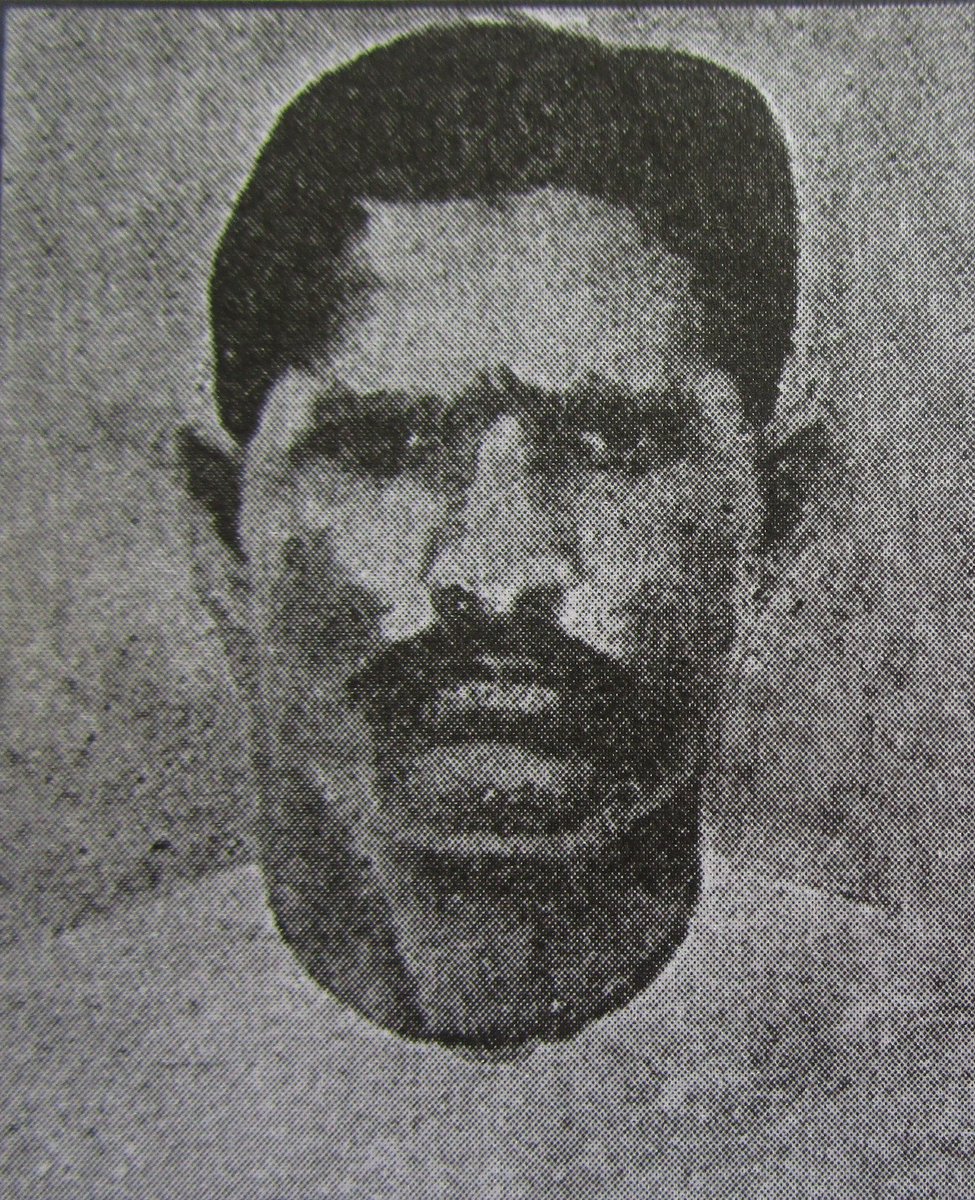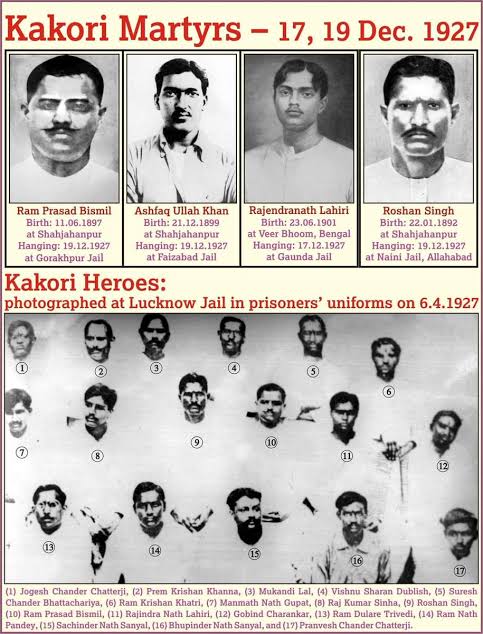
On his Janmadivas, let's remember
#Thakur_Roshan_Singh.
He had written to his cousin Hukam Singh from the jail, "The life of a man is the best creation of God and I have proved this by sacrificing it for cause of its creator. I am the first man of my native village Nabada who


#Thakur_Roshan_Singh.
He had written to his cousin Hukam Singh from the jail, "The life of a man is the best creation of God and I have proved this by sacrificing it for cause of its creator. I am the first man of my native village Nabada who



has glorified all of you my brothers and sisters. Why to repent for this mortal human body, it was to be finished any day. I am happy that I could devote more and more time to meditate in the last moments. I know the man who dies in the way of his duty or Dharma gets salvation
for ever. You need not worry for my death. I am going to sleep peacefully in the lap of God."
Roshan Singh (22 January 1892, Shahjahanpur district - 19 December 1927, Allahabad) was a Bharatiya krantikari who was previously sentenced in the Bareilly shooting case during
Roshan Singh (22 January 1892, Shahjahanpur district - 19 December 1927, Allahabad) was a Bharatiya krantikari who was previously sentenced in the Bareilly shooting case during
Non Cooperation Movement of 1921-22.
He was so outraged by the brutal treatment that he vowed to exact revenge on those who had wronged him.
After release from Bareilly central jail, he joined the Hindustan Republican Association in 1924.
In the Bamrauli Dacoity incident,
He was so outraged by the brutal treatment that he vowed to exact revenge on those who had wronged him.
After release from Bareilly central jail, he joined the Hindustan Republican Association in 1924.
In the Bamrauli Dacoity incident,
when he was challenged by a village wrestler, Thakur Roshan Singh shot the man dead single-handedly. He soon came to the attention of Britishers. His audacity and endless courage were becoming a threat to Britishers.
Roshan Singh was mistakenly detained for the railway heist
Roshan Singh was mistakenly detained for the railway heist
at Kakori because he resembled another revolutionary, Keshav Chakraborty, who was implicated in the Kakori event.
Even though Roshan Sigh attempted to persuade the judge and clear up the situation, the judge disregarded all of his justifications and sentenced him, along with
Even though Roshan Sigh attempted to persuade the judge and clear up the situation, the judge disregarded all of his justifications and sentenced him, along with
Rajendra Nath Lahiri (hanged 2 days before these 3's), Ashfaqulla Khan, and Ramprasad Bismil, to death.
The British Hanged 3 Freedom Fighters for #KakoriConspiracy on Dec- 19-1927.
1) Ram Prasad Bismil
2) AshfaqUllaKhan
3) Thakore Roshan Singh
#ForgottenHeroes
#VANDEMATARAM
The British Hanged 3 Freedom Fighters for #KakoriConspiracy on Dec- 19-1927.
1) Ram Prasad Bismil
2) AshfaqUllaKhan
3) Thakore Roshan Singh
#ForgottenHeroes
#VANDEMATARAM
• • •
Missing some Tweet in this thread? You can try to
force a refresh












